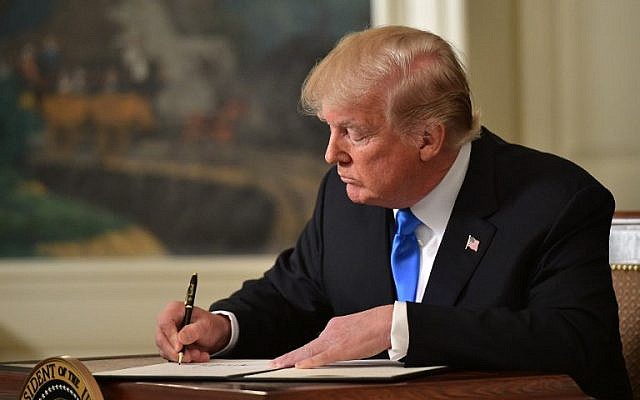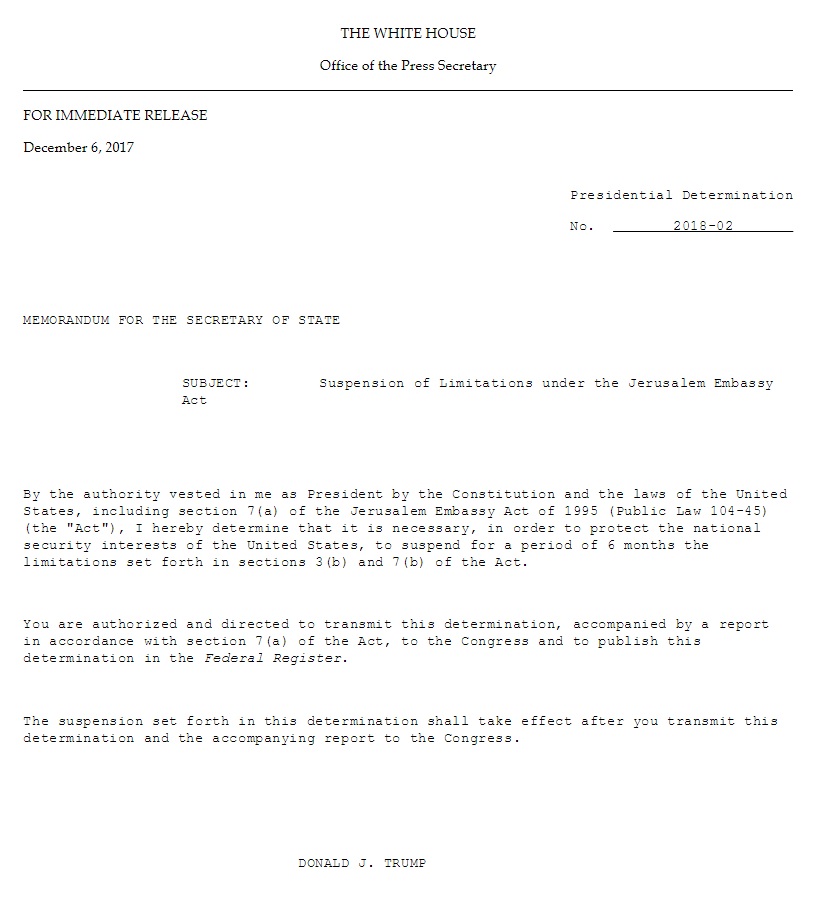US president renews 6 month deferment of diplomatic mission’s relocation, but has instructed State Department to begin preparations

Hours after recognizing Jerusalem as Israel’s capital Wednesday, and saying he had instructed the State Department to begin preparation to relocate the US embassy there, US President Donald Trump signed the waiver putting off any such move by another six months.
In 1995, the US Congress passed the so-called Jerusalem Embassy Act recognizing Jerusalem as Israel’s capital and stating that the US Embassy should be moved there.
But a built-in waiver, which allows the president to temporarily postpone the move on grounds of “national security,” has been repeatedly invoked by successive US presidents, from Bill Clinton to George W. Bush and Barack Obama, meaning the law has never taken effect.
Trump, in his speech Wednesday, said “After more than two decades of waivers, we are no closer to a lasting peace agreement between Israel and the Palestinians. It would be folly to assume that repeating the exact same formula would now produce a different or better result.”

Trump had been expected to begrudgingly sign the waiver, after having delayed on the matter for several days.
US Secretary of State Rex Tillerson said work on moving the embassy would start immediately. However the move could take years to actually complete.
“Consistent with the Jerusalem Embassy Act, I am also directing the State Department to begin preparation to move the American embassy from Tel Aviv to Jerusalem,” Trump said in his speech. “This will immediately begin the process of hiring architects, engineers, and planners, so that a new embassy, when completed, will be a magnificent tribute to peace,” he added, indicating a lengthy process.
Trump’s speech prompted praise in Israel, but an almost universal international backlash, as allies and foes alike denounced his decision and voiced concerns of new bloodshed in the Middle East.
As reported by The Times of Israel
